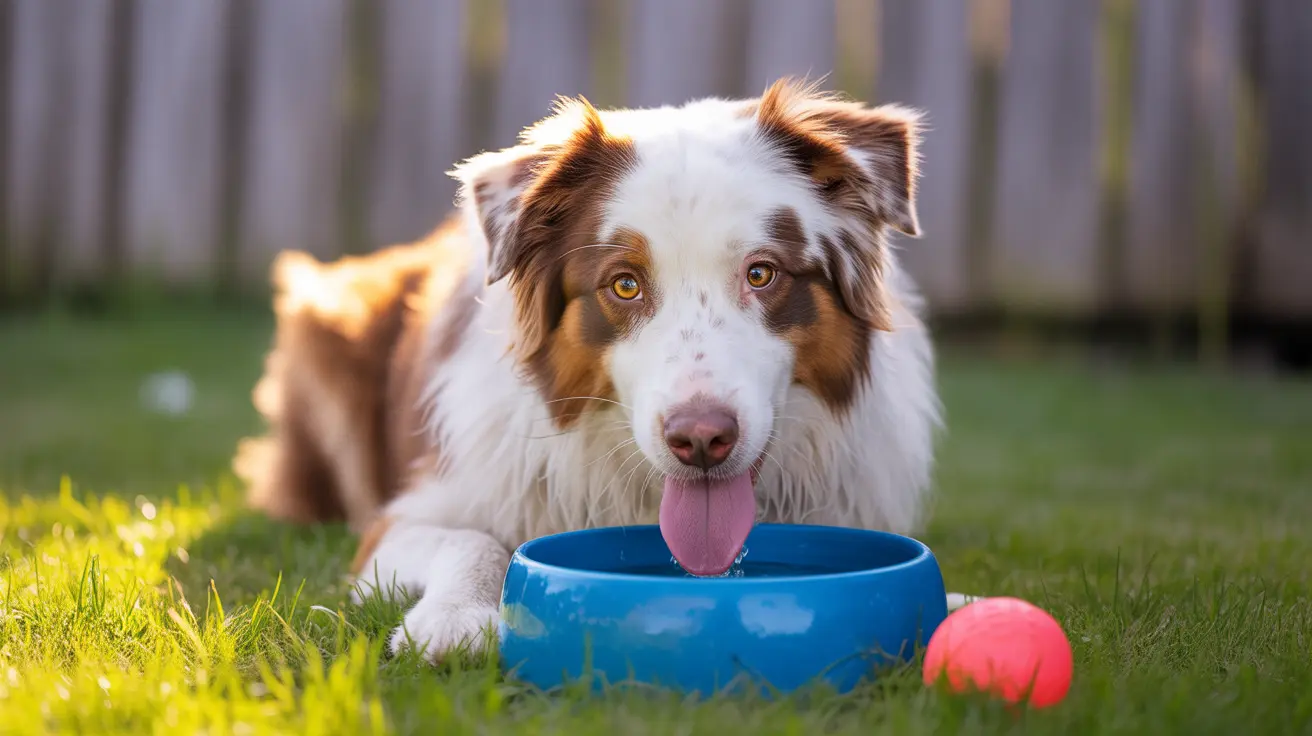As pet owners, we often wonder about our dogs' preferences when it comes to drinking water temperature. Understanding whether dogs like cold water can help us better cater to their needs and ensure proper hydration. Let's explore what science and veterinary experts say about dogs and their relationship with cold water.
Research has consistently shown that most dogs actually prefer cool or cold water over room temperature options. This preference isn't just a coincidence – it's backed by scientific studies and makes biological sense given dogs' limited cooling mechanisms.
The Science Behind Dogs' Water Temperature Preferences
Studies have revealed fascinating insights into how dogs interact with water at different temperatures. A notable study published in Recent Advances in Animal Nutrition in Australia found that when given multiple water bowls at varying temperatures, dogs consistently chose the coldest option available.
This preference likely stems from dogs' biological cooling mechanisms. Unlike humans, dogs can't sweat effectively across their bodies, relying primarily on panting and minimal sweating through their paw pads to regulate temperature. Cold water helps them cool down more efficiently from the inside out.
Benefits of Cold Water for Dogs
Cold water offers several advantages for our canine companions:
- Encourages increased water intake
- Helps regulate body temperature more effectively
- Provides natural enrichment, especially with ice cubes
- Can be particularly refreshing during exercise or hot weather
During warm months, cold water can be especially beneficial in preventing overheating and maintaining proper hydration levels. Many dogs naturally seek out cooler water sources when given the choice.
Safety Considerations and Myths
Despite common misconceptions, cold water is generally safe for healthy dogs. The long-standing myth that ice water causes bloat has been thoroughly debunked by veterinary professionals. The real risk factors for bloat relate to eating or drinking too quickly, regardless of temperature.
However, there are some situations where caution is warranted:
- Very young puppies or senior dogs may be more sensitive to extreme temperatures
- Dogs with certain health conditions might need temperature-modified water
- Deep-chested breeds should avoid drinking any water too quickly
- Dogs recovering from exercise should drink slowly to prevent stomach upset
Best Practices for Offering Cold Water
To safely provide cold water to your dog:
- Always have fresh, clean water available
- Change water frequently to maintain coolness
- Consider using pet fountains that naturally keep water cooler
- Monitor your dog's drinking speed and preferences
- Use ice cubes as occasional treats, especially in hot weather
Special Considerations for Different Dogs
While most dogs enjoy cold water, individual preferences and needs can vary based on:
- Breed characteristics (especially coat type)
- Age and health status
- Activity level and environment
- Previous experiences with cold water
- Seasonal changes and climate
Frequently Asked Questions
Do dogs prefer to drink cold water over room temperature water?
Yes, research shows that most dogs prefer cold water when given a choice. Studies have demonstrated that dogs consistently select the coldest water available from multiple options.
Is it safe for dogs to drink ice-cold water or eat ice cubes?
Yes, it's generally safe for healthy dogs to drink ice-cold water and eat ice cubes. The key is moderation and ensuring they don't consume too quickly to prevent stomach upset.
How does cold water help keep dogs hydrated and cool during hot weather?
Cold water helps dogs maintain lower body temperatures and encourages more frequent drinking, which is especially important during hot weather. Since dogs have limited cooling mechanisms, cold water provides internal cooling support.
Are there any risks to giving my dog very cold water or ice water?
For healthy dogs, there are minimal risks associated with cold water. The main concern is drinking too quickly, which can cause discomfort regardless of water temperature. Some dogs with sensitive teeth or certain health conditions may need temperature-modified water.
Can all dog breeds and ages tolerate cold water equally well?
No, tolerance for cold water varies among breeds and ages. Large, thick-coated breeds typically handle cold water better than small or short-haired dogs. Puppies, senior dogs, and those with health issues may be more sensitive to extreme temperatures.
Understanding your dog's individual preferences and needs regarding water temperature can help ensure they stay properly hydrated and comfortable throughout the year. Always observe your pet's behavior and consult with your veterinarian if you have specific concerns about their water consumption habits.






